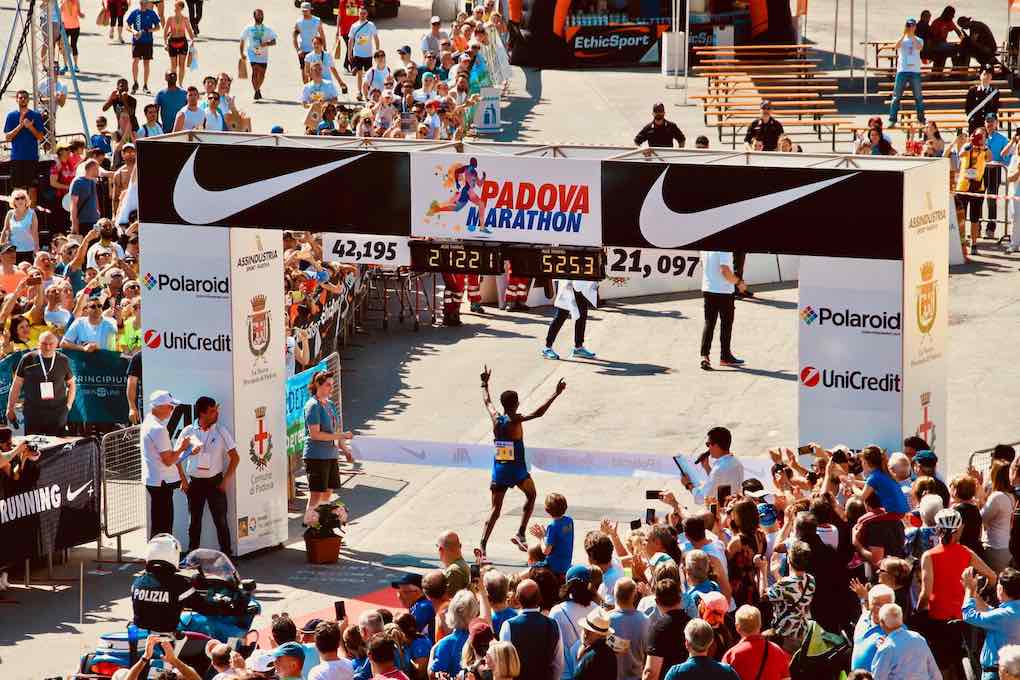Have you ever wondered how long it would take you to run 8 miles? For many people, running is a popular exercise and a great way to maintain overall health. However, knowing how long it takes to complete a certain distance can be important for setting fitness goals and tracking progress. In this article, we will explore the factors that can affect your running time and provide tips for improving your speed.
Key Takeaways:
- The average time it takes to run 8 miles can range from 1 hour to 1 hour and 25 minutes, depending on factors like running pace and experience level.
- Fitness level, terrain, weather conditions, running pace, and rest and recovery all significantly determine how long it takes to run 8 miles.
- To improve running time, gradually increase mileage, incorporate speed workouts, train on similar terrain, focus on nutrition and hydration, and get adequate rest and recovery.
How Long Does It Take To Run 8 Miles?
- Calculate running pace: Divide the distance (8 miles) by the time taken to run the distance. For example, running 8 miles in 1 hour equates to a pace of 7.5 minutes per mile.
- Average time: For experienced runners, an average time to run 8 miles ranges from 60 to 80 minutes, considering individual fitness levels and terrain.
Factors That Affect Running Time
Many factors can affect how long it takes to run 8 miles. These include your fitness level, the terrain you are running on, weather conditions, your running pace, and your rest and recovery. Let's investigate these factors and how they impact your running time. By understanding these various elements, you can better prepare for your next 8-mile run and improve your overall running performance.
#1 Running Pace
- Set a consistent pace based on your current fitness level and the distance to cover.
- Calculate your average pace by dividing the total time by the distance covered.
- If aiming for a faster pace, gradually increase your speed during training.
- Monitor your average speed to track progress and adjust your pace accordingly.
- Ensure your running pace aligns with your endurance level and minimizes the need for frequent stops.
You can improve your running pace by gradually increasing your speed during daily runs. By consistently monitoring your average time and adjusting your pace, you can successfully boost your overall speed and endurance.
#2 Fitness Level
- Assess your current fitness level by monitoring your heart rate, energy level, and exercise intensity level.
- Consult a fitness professional to determine your fitness level and set realistic goals.
- Gradually increase workout intensity based on your current fitness level to avoid injuries.
#3 Rest and Recovery
- Include rest days: Schedule at least one complete rest day per week for recovery.
- Manage exercise intensity level: Alternate between high- and light-intensity workouts for proper recovery.
- Engage in light-intensity activities, Like walking or yoga, to assist in overall recovery.
- Focus on sleep: Ensure adequate and quality sleep to support the body's recovery process.
- Stay hydrated and nourished: Maintain proper hydration and nutrition levels for post-exercise recovery.
Remember, rest and recovery are crucial for overall performance and injury prevention.
#4 Terrain
- Choose various settings for your running routes, such as hills, trails, and flat paths, to adapt to different terrain challenges.
- Incorporate walking segments into uphill or rough terrain to maintain aerobic conditions and adapt to the physical shape demands.
- Engage in regular training on similar terrain to enhance your endurance and improve performance on specific surfaces while also maintaining your physical shape.
#5 Weather Conditions
- Check the weather forecast for temperature, humidity, and wind speed to adjust your pace.
- Wear appropriate clothing and running shoes to accommodate varying aerobic conditions.
- Avoid extreme weather that can stress blood vessels and affect your performance.
Pro-tip: When running in changing weather conditions, stay mindful of your body's response to maintain a safe and effective workout.
Tips to Improve Running Time
As a runner, you may strive to improve your time and run 8 miles faster. Luckily, there are several ways to achieve this goal. Let's discuss five tips to help you improve your running time.
1. Increase Mileage Gradually
- Start by adding a few miles to your weekly mileage, aiming for an up to 10% increase each week.
- Gradually increase your long run distance, adding a mile every 1-2 weeks to build endurance.
- Alternate between steady, easy, and longer runs to acclimate your body to various distances.
- Utilize various methods, such as hill training, tempo runs, and intervals, to improve mile times.
2. Incorporate Speed Workouts
- Start with a warm-up jog of 10-15 minutes to prepare your muscles.
- Perform traditional speed workouts, like intervals or repeats, at a pre-determined speed, ensuring proper rest between sets.
- Opt for fartlek training, blending varying speeds and terrains to mimic race conditions.
- Incorporate a tempo run, sustaining a challenging pace for an extended duration, to build endurance.
- Advanced runners can experiment with complex speed workouts tailored to individual goals and fitness levels.
For best results, seek guidance from a professional trainer and gradually intensify your speed workouts while monitoring your progress.
3. Train on Similar Terrain
- Identify terrain: Analyze routes with hills, trails, and flat surfaces.
- Adjust training: Incorporate hill runs, trail runs, and speed work to simulate race conditions in various settings.
- Adapt footwear: Choose appropriate shoes for different terrains to enhance adaptability.
Fact: Training in various settings, including hills, trails, and flat surfaces, reduces the risk of injury and improves overall performance.
4. Focus on Nutrition and Hydration
- Hydrate: Drink water before, during, and after your run to maintain proper hydration.
- Nutrition: Consume a balanced meal with carbohydrates and protein post-run to aid recovery.
- Electrolytes: Replenish electrolytes lost during running by consuming sports drinks or electrolyte-enhanced water.
- Avoid Overeating: Refrain from consuming heavy meals right before running to prevent discomfort.
In the 1960s, the concept of active living and the importance of nutrition and hydration for aerobic conditions gained popularity, leading to increased awareness of the benefits of maintaining a balanced diet and proper hydration.
5. Get Adequate Rest and Recovery
- Rest and recovery are vital for optimal performance and injury prevention.
- Include at least one rest day to allow for complete rest.
- During active recovery, engage in light-intensity activities to accelerate muscle repair and maintain a healthy exercise intensity level.
- Adjust exercise intensity level to ensure a balance between training and recovery.
What Is a Good Time to Aim for?
A good time to aim for when running 8 miles depends on various factors, including fitness level, average running pace, and aerobic and anaerobic threshold heart rates. For example, a highly fit individual might aim for a time close to 60 minutes, while someone new to running might aim for around 90 minutes.
To improve your time, increase your aerobic capacity, and enhance your anaerobic threshold heart rate.
How to Track Running Time?
- Use a running pace calculator to determine your average pace per mile or kilometer.
- For beginners, consider incorporating walking segments and walk breaks to build stamina and prevent overexertion.
- Advanced runners might benefit from incorporating fartlek training or tempo runs to improve speed and endurance.
How to Stay Safe While Running?
- Wear appropriate footwear and comfortable clothing.
- Stay hydrated and maintain a balanced diet to maintain energy levels.
- Warm-up and cool-down to decrease the likelihood of injury.
- Set a goal and strive for a realistic goal time.
- Monitor your heart rate, staying within your aerobic threshold for endurance and below your anaerobic threshold to avoid overexertion.
Did you know? Proper running form can decrease the chances of injury and enhance performance.
How long does it take to run 8 miles at a steady pace?
The average time to run 8 miles at a steady pace is around 78 minutes, which means the average running pace is 9:45 minutes per mile. However, this can vary depending on age, sex, fitness level, and terrain.
What are some tips for beginners to complete an 8-mile run without stopping?
For beginners, it's essential to combine running and walking segments initially and gradually increase the time spent running. It's also necessary to train at least three times a week and take rest days in between to prevent overuse injuries.
Is running 8 miles a day too much?
Running 8 miles a day may be too much for beginners or those prone to injury. It's recommended to have at least one complete rest day per week and to vary your workouts to prevent overtraining and reduce the risk of injury.
How can I improve my speed for an 8-mile run?
To improve your speed for an 8-mile run, consider incorporating strength training and interval training into your training schedule. Gradually increasing your mileage and setting achievable goals can also help you improve your speed over time.
What is the average finish time for an 8-mile run?
The average finish time for an 8-mile run varies from person to person, but most runners aim to finish in under 63 minutes (7:53 minutes per mile). Age, fitness level, and terrain can affect finish times.



